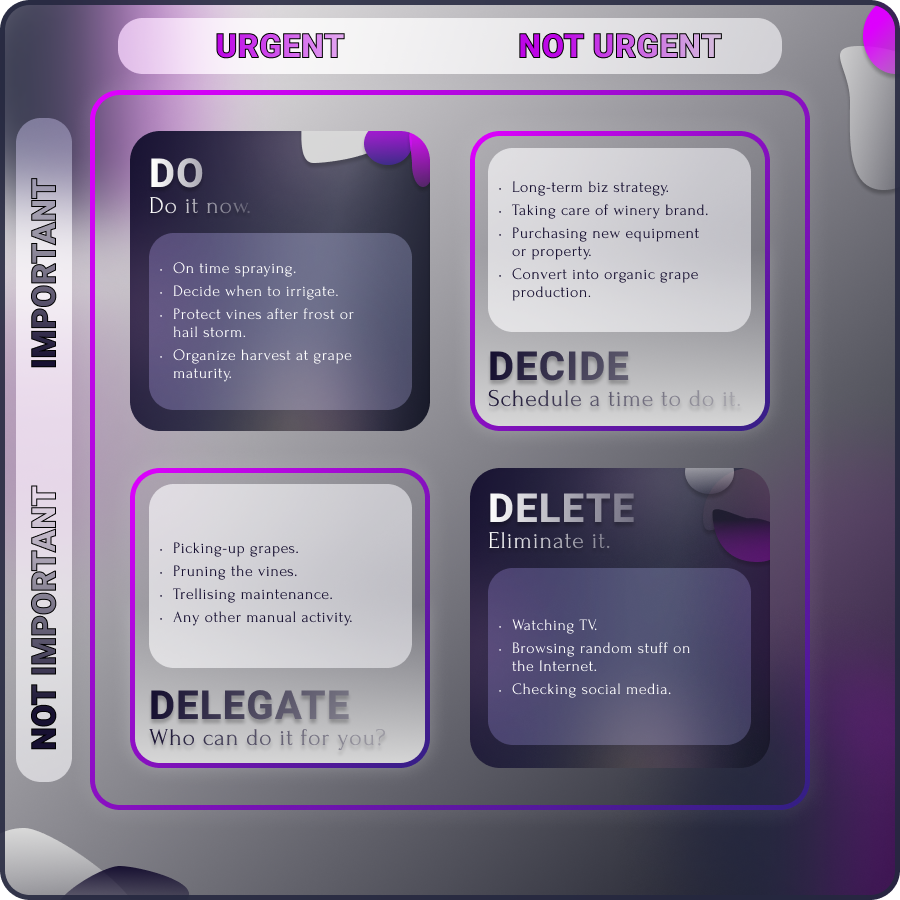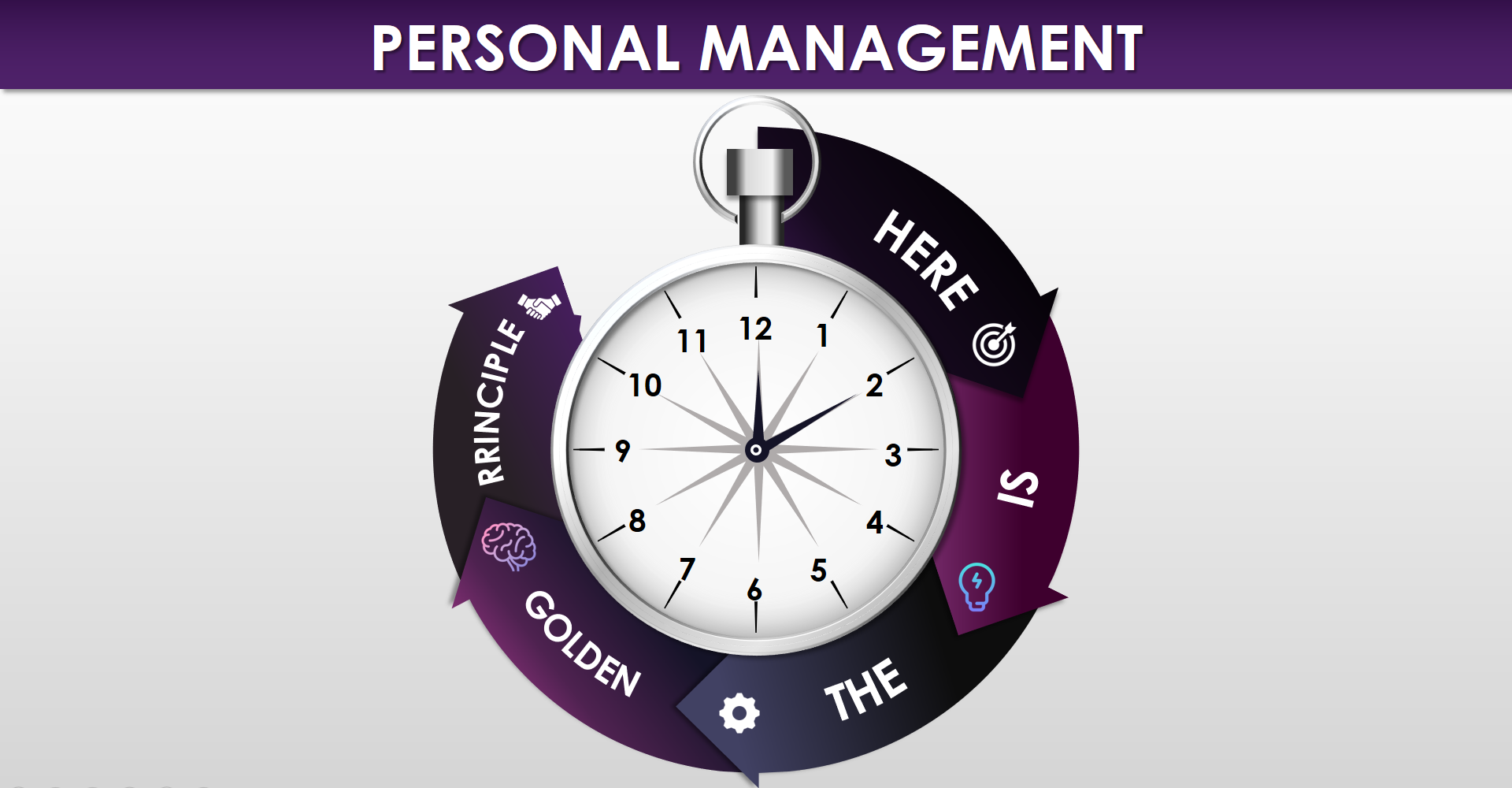You will learn how to use the Eisenhower decision matrix to increase your productivity and reduce your stress. Here is the Golden Principle
Let’s discover the magical world of productivity and management or how to advance your memory capacity, read faster and live life to its fullest potential. Today you are going to pick up the information about an essential framework to help you cut through the clutter and finish your most important work in record time.
The basis of the Eisenhower decision matrix is one simple idea what is: “Important is seldom urgent and what is urgent is seldom important”.
The difference between important and urgent
Important things are the bullet points that move us closer to our defined goals, dreams and aspirations in life. They have meaning and impact the things that actually matter to us in our lives. They help us live in alignment with our values and though we may forget about them. Sagnificant things include going to the gym, spending time with our families or taking time to come up with a strategic plan for the company.
On the other hand, we have urgent things. See, urgent things require your immediate attention like a phone call, an email from an angry customer or picking your kid up from the nurse’s office at school. As we’ve just said the fact is things are rarely ever both important and urgent and oftentimes we mistake the things that are urgent as being inherently important, guess what they are not.
If we map out a matrix of these two things, we get a clearer picture of what is going on. On the x-axis we have urgent and not urgent but on the y-axis we have important and not important. Therefore we are left with four quadrants each with a different value and each which should therefore be handled very differently.
First of all, the implementing the Eisenhower decision matrix is to identify which are the four quadrants a task or a project sits in.
QUADRANT 1: urgent and important
In our first quadrant we have the types of tasks that are not only important but also time-sensitive. These might include taking care of a sick relative, preventing a huge mistake on an order for your biggest customer or fixing a crucial bug on the company website. It goes without saying but if something is a Q1, you should do it immediately and put everything else aside to make space for it. Hopefully, though you won’t have too many of these, especially if you properly plan ahead which brings us to quadrant 2.
QUADRANT 2: important but not urgent
The promised land of quadrant 2 this is where some of the most influential things in our lives live. Unfourtunately, if we could only get to them because these tasks are not burning, we so often let them slide or delay them into the indefinite future but the painful truth is they truly are not less important than the quadrant 1 items. These include long-term strategy and planning meetings with your team, exercising, taking a class to improve your skills, spending quality time with your friends and family, meditating, researching new business opportunities, sleeping enough and preventative maintenance to make sure your website, your car, your water, heater and your body don’t break down and create a lot of Q1 tasks for you sure.
These things won’t pop out at you with red flashing lights but there’s no denying that they are extremely meaningful. That’s why when it comes down to queue to tasks and projects, you need to stop procrastinating and make a decision, when will you sit down and do it. If you’re a business owner or a manager in a company, Q2 tasks are the most significant part of your job and yet it’s something that’s awfully many of us CEOs neglect altogether after all. If you aren’t careful and deliberate, you will never get to quadrant 2, because you’ll always be too busy, playing catch-up on Q1 and Q3 which leads me to quadrant 3.
QUADRANT 3: urgent but not important
We’d all like to believe that we spend all of our time on important stuff but let’s be honest, a lot of the stuff that we do though, it may be urgent. However it is actually not paramount at all. Take for example, surprisingly many of the things we have advocated outsourcing, delegating or automating in this course and our other courses things like cleaning your house. Sure, it can get pretty urgent but it’s not exactly important in the sense.
It does not take a high level of skill to do. How about emailing back and forth to schedule meetings or the majority of emails? For that matter sure, they are top-priority with a lot of people, expressing shock. Although if you do not respond within a day, how many of them are actually important? If you are a business owner or a manager, the same probably goes for monitoring comments on your website or social media.
This is not to say that these points are not worth doing whatsoever quite the contrary, they are still worth doing. They are just not important, at least not enough for you to actually do them yourself, that is why the answer to Q3 tasks is a simple one. Delegate them, finding a technological solution an automation or a human being, who can help you with this task and pass it off to them. We ideally want to spend as little of our time as possible in quadrant 3. Finally, we get to the last quadrant.
QUADRANT 4: not urgent and not important
Here we find the large category of tasks and projects that quite frankly aren’t worth anyone’s time. Some of these may be enjoyable but they are not moving you towards your desired goals in any way. shape or form. Watching television, scrolling through Facebook mindlessly. reading crappy BuzzFeed posts, gambling. We are all human and we all deserve to have some down time but downtime does not always have to be Q4, it can easily be Q2 while sometime in Q4 is inevitable. We would all be much better off if we eliminated Q4 activities to the greatest extent.

The NUTSHELL
Management is clearly different from leadership. Leadership is primarily a highpowered, right brain activity. It’s more of an art; it’s based on a philosophy. You have to ask the ultimate questions of life when you’re dealing with personal leadership issues.
But once you have dealt with those issues, once you have resolved them, you then have to manage yourself effectively to create a life congruent with your answers. The ability to manage well doesn’t make much difference if you’re not even in the “right jungle.” But if you are in the right jungle, it makes all the difference. In fact, the ability to manage well determines the quality and even the existence of the second creation. Management is the breaking down, the analysis, the sequencing, the specific application, the time-bound left-brain aspect of effective selfgovernment.
My own maxim of personal effectiveness is this: Manage from the left; lead from the right.
Stay with Rizen! Do not be a Randomizer!



